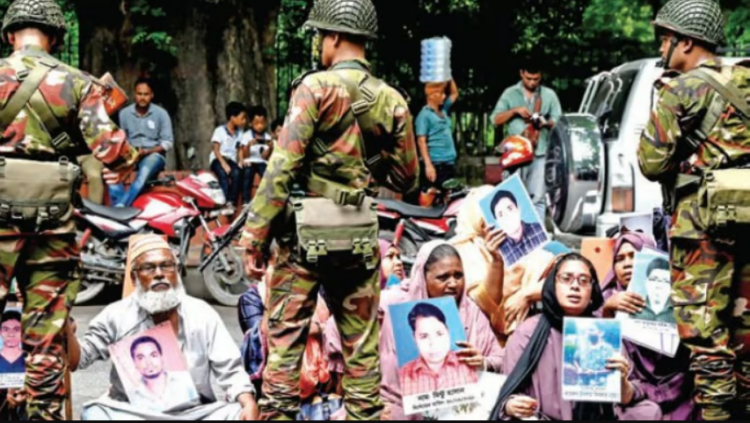An inquiry commission established by Bangladesh’s interim government has found Indian involvement in cases of enforced disappearances during the tenure of former Prime Minister Sheikh Hasina.
The state-run Bangladesh Sangbad Sangstha (BSS) news agency reported the findings on Saturday, citing the Commission of Inquiry on Enforced Disappearances.
A five-member panel led by a retired Supreme Court judge, the practice of “captive exchanges” between Bangladesh and India has raised concerns about the subsequent fate of detainees, according to the commission.
“The Indian involvement in Bangladesh’s system of enforced disappearances is a matter of public record,” the report stated. Intelligence information suggested that some Bangladeshi prisoners might still be held in Indian jails.
Here are some key findings:
The commission uncovered intelligence pointing to exchanges of detainees between Bangladeshi and Indian authorities.
There is a “persistent suggestion in law enforcement circles” that some Bangladeshi citizens remain incarcerated in Indian jails.
A preliminary estimate by the commission suggested that over 3,500 individuals have been subjected to enforced disappearances in Bangladesh.
The commission called on Bangladesh’s Ministries of Foreign Affairs and Home Affairs to work proactively to identify and locate any Bangladeshi citizens potentially detained in India. However, it noted that pursuing this investigation beyond Bangladesh’s borders was outside its jurisdiction.
The findings have also drawn attention from international human rights organizations. Amnesty International and Human Rights Watch have previously raised concerns over enforced disappearances in Bangladesh, but the direct mention of Indian involvement adds a new dimension to the issue. Observers are calling for a transparent investigation and greater accountability to ensure justice for victims and their families.






